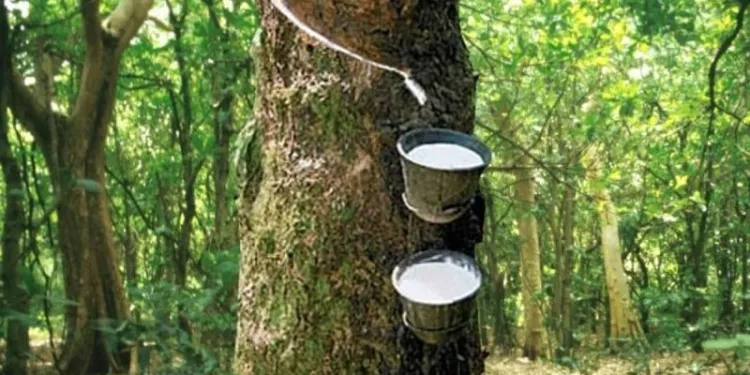The Natural Resources and Environment Ministry has proposed a profit-sharing arrangement between the state and rubber farmers who have illegally planted in national forest reserves and national parks, a ministry source said.
Permanent secretary Mingquan Wichayarangsaridh submitted the idea to the National Council for Peace and Order (NCPO) on Wednesday, the source said.
Under the plan, the ministry would destroy all rubber trees less than three years old which were illegally planted inside national forest reserves which come under the Royal Forest Department (RFD).
But for trees old enough to give sap, the Forestry Industry Organisation would keep them and share 20% of the revenue with the department, 20% with the local Administrative Organisation and the rest with the growers.
The Department of Natural Parks, Wildlife and Plant Conservation (DNP) has felled many rubber trees illegally planted in national parks and forest reserves to meet the NCPO’s order to preserve national resources while driving out encroachers.
Prayuth Lorsuwansiri, chairman of Kasetsart University’s Forest Alumni Society, said the profit-sharing arrangement would be illegal, as the DNP cannot benefit from trees illegally planted inside national parks.
The ministry plans to amend the law to allow it, says DNP chief Niphon Chotiban, adding the department might pass a regulation to allow the use of rubber trees for 10 years before downing them. Any plan must be approved by the NCPO.
The RFD last week felled rubber trees across more than 100 rai of forest reserves in Loei.
Another operation began on Tuesday to fell about 20,000 trees on 370 rai that encroached on Mu Koh Phi Phi-Nopparathara National Park in Krabi.
Locals in Phatthalung’s Khao Ban Tad filed a complaint against the DNP’s action with the National Human Rights Commission, asking the department to stop operations in the area.
About 4 million rais of rubber trees are thought to have been planted on protected lands.
– Bangkok Post




























